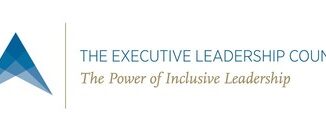
By Foundation for Women’s Cancer
As Breast Cancer Awareness Month ends, the Foundation for Women’s Cancer highlights the link between breast cancer and certain gynecologic cancers and encourages individuals to be vigilant about the risk factors associated with these diseases.
Many risk factors for breast cancer, such as hormonal imbalances, obesity, and genetics, are also associated with gynecologic cancers. Among these risk factors, family history of breast or ovarian cancer can increase the risk of being diagnosed with breast cancer.
BRCA1 and BRCA2 Genetic Mutations
Mutations in the BRCA1 and BRCA2 genes can greatly increase the risk of being diagnosed with breast and ovarian cancer. These mutations can also raise the risk of other gynecologic cancers, such as fallopian tube and peritoneal cancers. This connection emphasizes the need for those with a family history of these mutations or certain cancers to undergo comprehensive screenings regularly for early detection. A medical provider may also recommend genetic testing if certain symptoms are present to assess your risk of breast and gynecologic cancers.
CA125 Test
The CA125 test is a blood test used to measure the levels of CA125, a protein produced by ovarian cancer cells. While primarily used for ovarian cancer detection and monitoring, elevated CA125 levels have also been associated with breast cancer. Recent studies have suggested that elevated CA125 levels in premenopausal women may indicate a higher risk of developing breast cancer. While this test is not a definitive breast cancer screening tool, it can serve as an indicator for further evaluation and close monitoring.
What can you do to be proactive?
The connection between breast cancer and gynecologic cancers emphasizes the importance of comprehensive health awareness and proactive screening. The CA125 test and genetic mutations like BRCA1 and BRCA2 are valuable tools in identifying individuals at higher risk for both breast and gynecologic cancers. Early detection and risk assessment are critical in the fight against these diseases, and increased awareness of the connection between certain diseases can ultimately save lives. Here’s what you can do to play an active role in your health and wellbeing in November and beyond:
- Commit to monthly breast self-exams.
- Schedule your next clinical breast exam and mammogram when you schedule your annual gynecologic exam.
- Prioritize an active and healthy lifestyle; join the FWC’s Move4Her campaign and commit to doing a fitness activity for just five minutes daily to improve your health.
About Foundation for Women’s Cancer

MISSION
To bring together all communities of advocates, patients, caregivers, partners and the healthcare team to eradicate or lessen the impact of gynecologic cancer. We will achieve this through research, education and public awareness.
VISION
A world where everyone has the power to impact, prevent or overcome a diagnosis of gynecologic cancer.
CORE VALUES
- Awareness: Promote public awareness of gynecologic cancer prevention, early diagnosis and optimal treatment.
- Diversity and Inclusion: Commit to cultural humility and diversity of thought and engagement.
- Education: Provide innovative education and continuous learning.
- Leadership: Set an example of integrity, quality and excellence to eradicate gynecologic cancer.
- Partnership: Support efforts of the Society of Gynecologic Oncology (SGO) to eradicate gynecologic cancers.
- Research: Advance innovation and discovery to eradicate gynecologic cancer.





